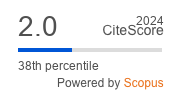Multiple Myeloma Genomics – A Concise Review
DOI:
https://doi.org/10.5644/ama2006-124.242Keywords:
Chromosome Aberration, Clonal Evolution, High-Throughput Nucleotide SequencingAbstract
The aim of this review is to summarize the current knowledge of genomic information in multiple myeloma. Multiple myeloma is a genetically complex plasma cell neoplasm that evolves from pre-malignant stages following genomic evolution leading to the proliferation of malignant plasma cells and the production of monoclonal immunoglobulin. The outcomes of patients with myeloma have dramatically improved over the past decade with the introduction of novel agents. Nevertheless, the disease is considered incurable and displays considerable heterogeneity in clinical presentation, course and survival. This heterogeneity can often be traced to cytogenetic abnormalities in the malignant clone. Accordingly, a large body of literature has examined the impact of genomics on myeloma and risk stratification based on cytogenetics has been adopted. In this review, we will focus on the cytogenetics of multiple myeloma and the prognostic significance as well as possible predictive implications. We will briefly review the existing methodologies relevant to myeloma but explore in greater depth the more novel molecular tools as applied to this disease.
Conclusion. The field of genomics in multiple myeloma is rapidly evolving however more translational research is needed to accurately use genomic data as a tool of precision medicine.





